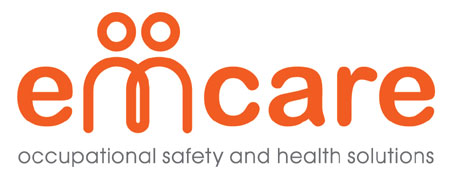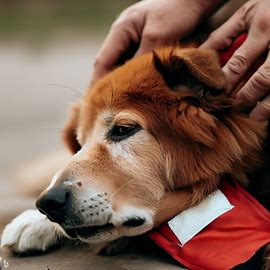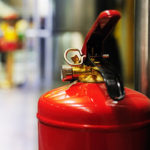Tempting though it may be during the holidays to allow your cat or dog to eat or drink the same things that are giving you so much pleasure, caution is advised. Pets are more sensitive to some substances than humans. Thus, some foods and drinks may cause adverse reactions ranging from mild to fatal when ingested by your pet. So, watch that Fido and Kit Kat do not sneak bites of food or sips from drinks left on tables.
Here are some of the foods and drinks that are especially harmful to pets.
Alcohol
Just as too much alcohol can be fatal to people, so can it be to pets. However, the amount imbibed leading to death would be far less in pets than in people. Some of the warning signs of alcohol over-indulgence are GI upset, lethargy, respiratory depression, tremors, and coma. So be sure that your cats and dogs don’t sneak a rum ball, much less guzzle spirits straight.
Caffeine
Caffeine can be toxic to pets if they ingest too much. An excess of this substance can raise blood pressure and cause irregular heartbeats, seizures, muscle tremors, and even death. So be sure your pet can’t drink or eat anything containing caffeine, such as coffee, tea, sodas, desserts, etc.
Certain Meats
As much as pets love meat, avoid giving them skin from turkeys or chickens. Even ham can be hard on pets. These foods all have a high-fat content that can cause vomiting, diarrhea, and even pancreatitis.
Bones
Do not give your pets any type of cooked bone, as they lose moisture, become brittle, and tend to splinter. The same is true of raw poultry and ham bones. Any of these cooked or raw bones can cause choking and/or obstruct or damage an animal’s gastrointestinal tract, potentially leading to painful and costly surgery. The only bones that are safe for your dog are large, raw, cow bones; but they must be big enough that the pet doesn’t try to swallow it. However, chewing bones may result in cracked or broken teeth. In addition, be aware that raw bones may contain bacteria that is dangerous to animals and humans. If you do give your dog a bone, be sure to keep an eye out for any signs of distress.
Candy and Chocolate
Sugar isn’t healthy for pets but be especially wary of anything containing the sweetener xylitol, which can cause low blood sugar, injury to the liver, and even death in dogs. Low blood sugar symptoms include weakness, shaking, and seizures. Symptoms of liver injury may not show up for a few days. They include a decrease in appetite, lethargy, vomiting, and diarrhea. Cats don’t seem to have the same sensitivity to xylitol as dogs, but you should seek veterinary care if a cat ingests a large amount of it. Unfortunately, candy isn’t the only thing containing xylitol. It’s also in chewing gum, tooth paste, vitamins, peanut butter, etc.1
Chocolate is another dangerous substance for dogs and cats. In addition to containing caffeine, it has theobromine that is toxic and can lead to seizures and death. So be sure not to leave wrapped gifts of chocolate under the Christmas tree or lying around on tables where your pets could easily get into them. If a dog or cat does eat chocolate, call your vet right away to determine if the type and amount eaten calls for an immediate office visit.
Dairy Products
Most dogs and cats are lactose intolerant, which means that their bodies are unable to digest lactose, a type of sugar found in dairy products. Giving your pet more than a little milk, cream, ice cream, etc., can result in vomiting, diarrhea, and stomach pains. In addition, these products are full of fat. One example given by the PDSA is that one saucer of cow’s milk given to a cat equals a 12-inch pizza eaten by a human.2 Although some people have found that their pets thoroughly enjoy and can tolerate cheese, you should only give it in moderation due to the risks of obesity and pancreatitis. Also, don’t feed your pet blue cheese because the mold in it can make them ill. At all costs don’t allow your pet to get into your eggnog, as the combination of alcohol and dairy products could easily lead to a holiday trip to the emergency vet’s office!
Nuts
Nuts have a very high fat content and can cause pancreatitis if eaten in excess. In addition, some nuts contain toxins that can cause vomiting, muscle weakness, tremors, and hypothermia. Peanuts are generally safe in moderation, but stay away from macadamia, almonds, walnuts, and pistachios in particular.
Onions and Garlic
All members of the onion family (including chives, garlic, leeks, scallions, and shallots) contain the toxic component N-propyl disulfide that can cause vomiting and diarrhea in cats and dogs. These foods can also lead to anemia, some symptoms of which are lethargy and lack of appetite. These problems can arise whether the onions are raw, cooked, powdered, freeze-dried, etc. Check any food’s ingredients carefully as onions are in many prepared foods, including those sausages that dogs love.
Raisins and grapes
Consumption of raisins or grapes can lead to nausea, vomiting, hyperactivity, and even kidney failure in dogs and cats. Thus, be sure that you keep any dish containing grapes or raisins out of reach of your pet.
Spices
Nutmeg contains myristicin, which can cause stomach pains, hallucinations, agitation, and even seizures. Cinnamon can result in stomach upset, low blood sugar, and liver disease. While cooked foods probably don’t have enough of these spices to harm pets, be sure not to leave unopened containers of the spices on the counter. In addition, be sure pets can’t ingest any essential oils containing nutmeg or cinnamon.
Safety Tips
Some general precautions to take to keep your pets healthy and safe include:
- Avoid feeding pets any prepared dishes unless you have gone over the ingredients list and know that each one is safe.
- Inform your guests not to feed your pets any people food without your express permission.
- Make sure you securely dispose of or store any remaining food in the refrigerator so that pets don’t go in search of it after you’ve gone to bed.
- Contact your vet immediately if you suspect your pet has consumed something it shouldn’t have.
What holiday foods can dogs and cats eat safely? Some healthy and nutritious foods include white meat turkey (without skin, fat, or bones), cooked sweet potatoes, baked potatoes, plain pumpkin puree, green peas, green beans, and unsweetened cranberries. If you plan to give your pet any vegetables from the table, make sure you don’t add any butter and salt to the portions they get. It might be easiest to put the hot vegetables in the servings dish plain and let your guests add their own butter and salt.
Sources
1https://www.bluecross.org.uk/advice/dog/xylitol-poisoning-in-dogs
2https://www.pdsa.org.uk/what-we-do/blog/vet-qa-can-cats-drink-milk
https://www.peta.org/living/animal-companions/holiday-foods-that-are-bad-for-dogs/



